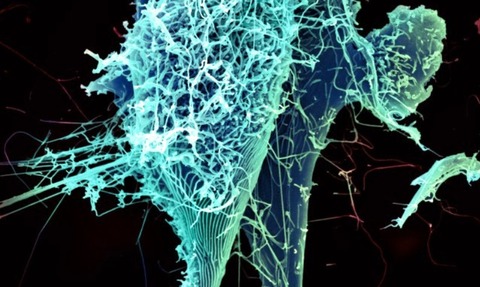53 existing drugs block Ebola, researchers find
17 Dec 2014

According to new research, a rapid drug screen has identified over 50 existing drugs which could be used to treat Ebola.
Using a well-plate assay to conduct a rapid drug repurposing screen of Food and Drug Administration (FDA)-approved drugs, a US-led research team has identified 53 drug compounds which actively block Ebola virus-like particles (VLPs) from entering cells.
According to the researchers, these 53 active compounds can be divided into categories including microtubule inhibitors, oestrogen receptor modulators, antihistamines, antipsychotics, pump/channel antagonists, and anticancer/antibiotics.
“We now have a longer list of things that might work, but the list of things that definitely will work still unfortunately stands at zero
Virology lecturer Ben Neuman
To conduct its research, the team applied a previously developed Ebola (VLPs) assay comprising of two proteins: glycoprotein (GP) and the matrix protein VP40 fused to a beta-lactamase reporter enzyme, which can be used to monitor VLPs entry in a regular biosafety level 2 (BSL-2) cell model.
Though the team admits more experimentation is needed to fully understand the possible use of any of the 53 compounds against the current Ebola outbreak, it does suggest it will continue to screen additional experimental drugs that are currently used in clinical trials.
The researchers also expect to expand their compound screening potential via the use of the entire National Centre for Advancing Translational Sciences (NCATS) collection of approximately 400,000 compounds.
Reaction to today’s announcement has, however, divided opinion.
Virology lecturer at the University of Reading Ben Neuman said: “On the positive side, this study extends the list of drugs that are safe to use in people, and have been shown to interfere with Ebola in the lab.
“However, as with other RNA viruses, it takes a lot to stop Ebola and none of the drugs identified in this study has been shown to protect an experimental animal yet.”
According to Neuman, the compounds identified in the US-led study also block the virus in a similar way to the promising treatment ZMapp, which is currently being developed by pharmaceutical firm Mapp Biopharmaceutical, though very little of the company’s drug is currently available.
“What we really need are drugs that attack the virus in different ways, and could be [complementary to] ZMapp in multi-drug therapies,” Neuman said.
“We now have a longer list of things that might work, but the list of things that definitely will work still unfortunately stands at zero.”
As of December 13th, the Centre for Disease Control and Prevention (CDC) reported that 6,841 people had died as a result of the current West Africa Ebola epidemic.
Though countries such as Guinea, Liberia and Sierra Leone have been hit the hardest, countries such as Nigeria and Senegal have controlled and effectively eradicated Ebola transmission in their respective countries.

